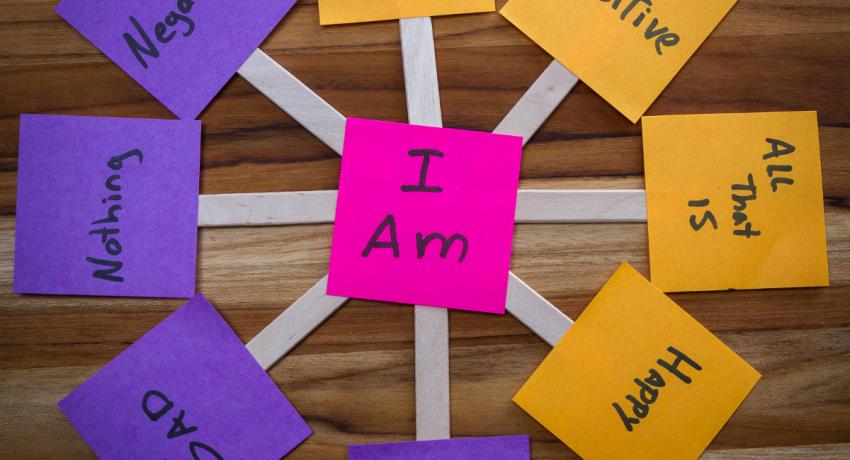Mental Health Check-In
Mental Health Check-In
Taken from “Psychology Today”January/February 2020 Issue
Although an annual psychological check up may not be feasible for everyone in the current healthcare system, you can still feel empowered to explore your mental well-being.
- Read more about Mental Health Check-In
- Log in to post comments
Emotional Bandwidth
Emotional bandwidth
Each of us has a certain emotional bandwidth of what we can handle on a day-to-day, month-to-month or even year-to-year basis. When our bandwidth is maxed out we feel overwhelmed. The temptation is to check out and avoid. Some of us get paralyzed and incapacitated, while others go-go-go trying to task-master their way out of it.
I love this exerpt from a blog post by Karin Habib, PhD:
- Read more about Emotional Bandwidth
- Log in to post comments
Overcoming Shame-Based Thinking
Overcoming Shame-based Thinking
Many of our feelings are simple reactions to specific events that we perceive as pleasant or unpleasant. After the event is over, the related feeling usually fades away. We can easily see that our emotions are fleeting and impermanent.
- Read more about Overcoming Shame-Based Thinking
- 1 comment
- Log in to post comments
Distress Tolerance Skill - TIP
When experiencing intense negative emotions, it’s not uncommon to feel like “this will never end” or “this will last forever.” It’s not surprising that when in this distressed state of being, one might resort to the use of unhealthy coping mechanisms (like binge eating, use of illicit drugs, self-harm) in an effort to self-soothe. Dialectical Behavioral Therapy (DBT) founder Marsha Linehan developed distress tolerance skills that are easy to access and straightforward to help people use more adaptive, less destructive strategies when in crisis.
- Read more about Distress Tolerance Skill - TIP
- Log in to post comments
What is Trust?
I am a HUGE fan of Dr. Brene Brown. My clients will tell you that I reference her work frequently when discussing courage, fear, vulnerability, and “let’s rumble” topics. Another topic that repeatedly comes up is TRUST. How do we define trust? How do we build trust with others? And to me, the most important question, how do I build or sustain trust with myself?
- Read more about What is Trust?
- Log in to post comments
Approaches to consider when being with adolescents:
1. Don’t speak in teen jargon.
Hip, cool, crunk, sick, ace, fly, phat, tight. By the time you discover these words, they are already out of fashion. And if you come across one in UrbanDictionary.com that is timely, you might freak a teen out a little. Yes, it’s tempting to use teen words ironically for humorous effect. But if you get more eye rolls than normal, stick to the words you know. It may be funny only to you.
2. Be honest.
18 Year Old
After coming to the counseling sessions, Courtney has opened up something that was left empty - my heart. She has guided me to a better point in life. I opened up my feelings to begin confronting the bad feelings, I can now honestly say that I am happy. I have lost the urge to use the bad coping mechanisms to deal with stress. Now I have other coping mechanisms that are beneficial in a good way. Courtney has been the first counselor that has actually listened and helped me deal with life.
Fight, Flight, Freeze Responses
Below is a list of flight, fight, freeze responses. These are possible signs that one is no longer feeling safe and might need to stop what they are doing. While this is not a complete list, it may help to identify what you need to be watching for:
Fight:
-
Crying
-
Hands in fists, desire to punch, rip
-
Flexed/tight jaw, grinding teeth, snarl
-
Fight in eyes, glaring, fight in voice
- Read more about Fight, Flight, Freeze Responses
- Log in to post comments
Breathing Exercises for Your Child...and for Adults too:)
Flower Breaths:
Provide your child a fragrant, colorful flower and tell him to breathe in through the nose and breathe out through the mouth. Flower breaths help release tension. Offer a flower like daffodils, daisies, and roses.
Hissing Breaths:
Hissing breaths help with physical and mental relaxation. Teach your child to breathe in through the nose. Make him inhale a deep breath, and then ask him to exhale through the mouth, while making a hissing sound like a snake. Prolonging the exhalation will help with relaxation.









